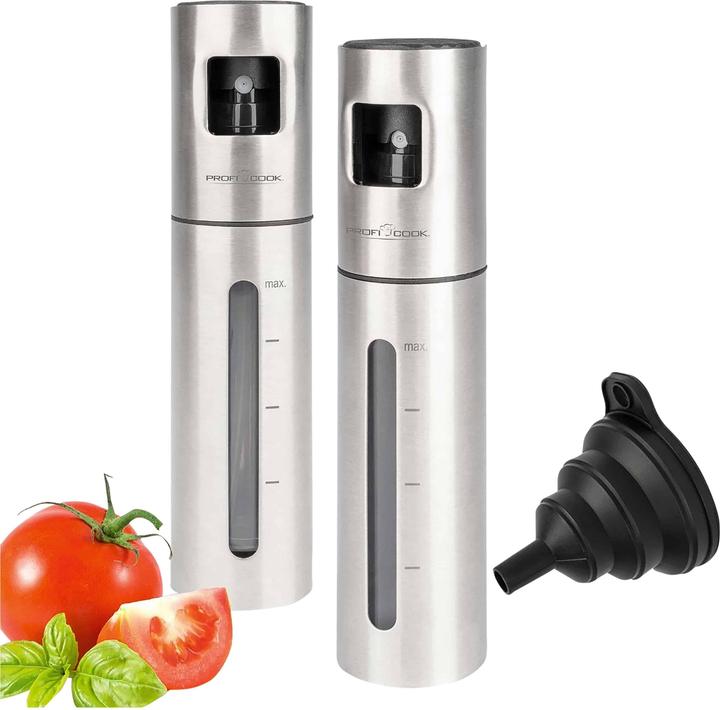

Which cooking oil belongs in the refrigerator – and which doesn’t?
Light, heat and oxygen: these are the biggest enemies for your cooking oil. A few simple tricks will keep your oil fresh – and good for your kitchen and body.
Have you ever put olive oil in the refrigerator and wondered why there’s little white bits in it? Or why your linseed oil turned bitter after a few weeks? There are clear reasons why some oils spoil more quickly than others. Correct storage makes all the difference – and it’s not complicated at all. Here are the most important rules of thumb and specific tips you can follow.
Everyday myths exposed: what’s right, what’s wrong?
Many oils are sensitive little things. Light, oxygen and heat age their fatty acids faster than we’d like. Should we keep them in the dark? Yes, that helps. Should we keep them cool? It depends. Because what’s good for nutty linseed oil leads to flaky bits in olive oil. The decisive factor for correct storage depends on the oil in question.
You can’t see the problem to begin with. Even at room temperature, oxygen reacts with certain fatty acids especially the healthy, polyunsaturated ones such as omega-3 – and breaks them down. You only realise this when the oil smells weird or tastes strange. At that point it’s too late, your oil’s already bad. Light and heat accelerate the ageing process. Scientific studies show that correct storage significantly extends the shelf life and, above all, preserves the content of valuable nutrients.


Zeller Present Vinegar
270 ml

Proficook PC-EOS 1270
100 ml
Refrigerator or not?
Storing in a cool place can be protective – but not always. Because not every oil feels comfortable in frosty temperatures. Sensitive varieties i.e. the real nutrient bombs, such as [linseed oil](/search?q=linseed oil), [hemp oil](/search?q=hemp oil), [walnut oil](/search?q=walnut oil&filter=pt%3D3029), [grape seed oil](/search?q=grape seed oil&filter=pt%3D3029) and [pumpkin seed oil](/search?q=pumpkin seed oil&filter=pt%3D3029) benefit from the cold. Putting them in the refrigerator prevents the food from quickly turning bitter and keeps the omega-3 fatty acids stable.
Olive oil, on the other hand, is completely different: it goes cloudy in the fridge and tastes less aromatic. But not to worry, the floating structures disappear again at room temperature and won’t compromise the quality. Still, it’s recommended to store olive oil between 12 and 18 degrees and ideally in a dark place – this keeps the aroma optimal.
It’s a similar situation for rapeseed oil – it’ll go clumpy in the fridge but the quality isn’t harmed. The most important things to consider here are freshness and really dark, airtight storage.
Coconut and palm oil are solid at room temperatures – that’s why we call them fats. Chemically, like other oils, they consist almost entirely of triglycerides. The difference is that the high proportion of saturated fatty acids gives them a firm consistency and makes them particularly stable. They can easily cope with cold, but also longer storage at room temperature.
Most important rules of thumb at a glance
Light off, lid on: it’s best to store oils in a dark glass bottle or put the whole thing in the kitchen cupboard. Always fasten bottle lids tightly, immediately after use.
Keep them cool – but only specific oils: refrigerating is an absolute must for linseed oil, hemp oil, walnut oil, grapeseed oil, pumpkin oil and thistle oil. A cool, dark place is sufficient for olive oil and rapeseed oil.
Use it up quickly: keep big bottles of olive oil but go for small bottles of the more sensitive varieties and use them up in four to six weeks.
Cloudiness is harmless: flakes in the cold aren’t a sign of lack of quality, rather a harmless molecule state.
What you definitely shouldn’t do with your cooking oil
Never leave linseed oil open next to the stove – this is practically a death sentence for valuable omega-3 fatty acids. Strong heat, light rays or a bottle that isn’t completely closed can cause sensitive oils to age unnoticed.
As a general rule, it’s better to regularly buy small bottles and use them up quickly. Not only does it taste better this way – you also ensure the best nutritional yield.
Science editor and biologist. I love animals and am fascinated by plants, their abilities and everything you can do with them. That's why my favourite place is always the outdoors - somewhere in nature, preferably in my wild garden.
Practical solutions for everyday problems with technology, household hacks and much more.
Show all


